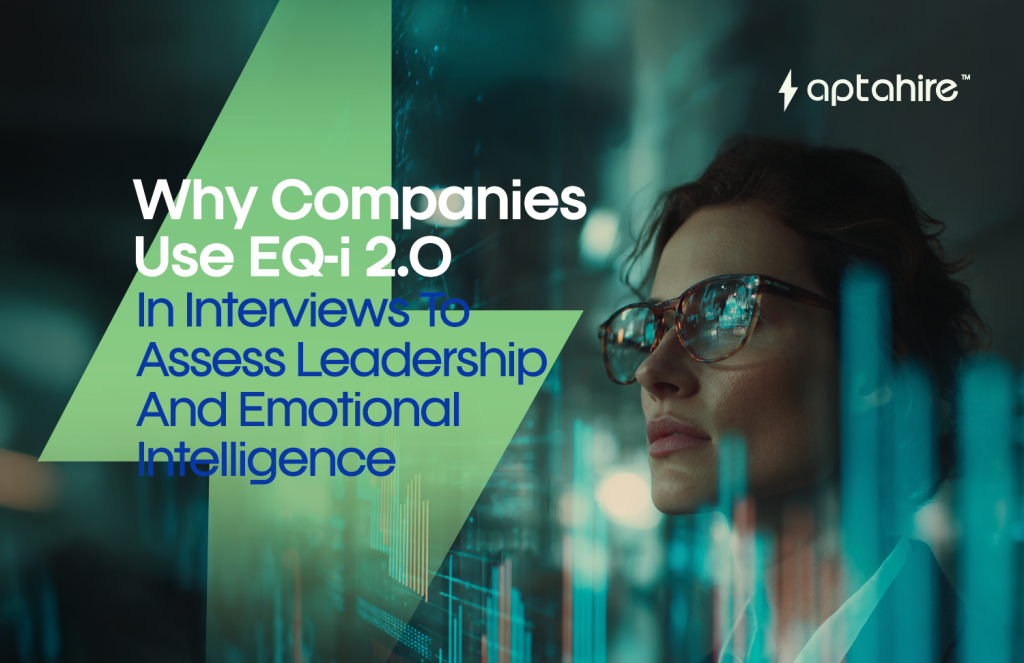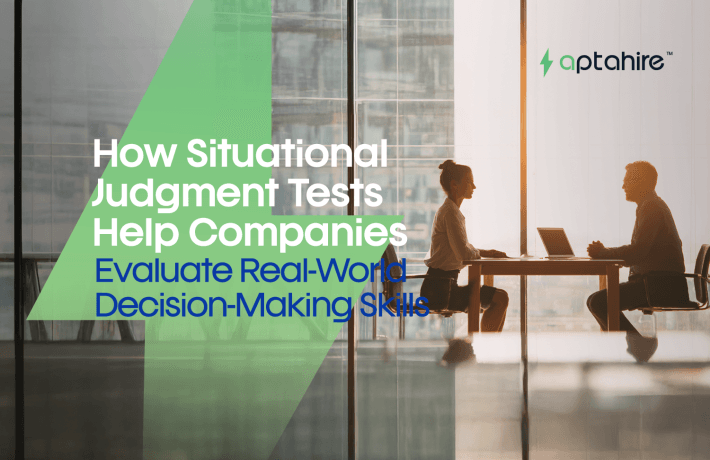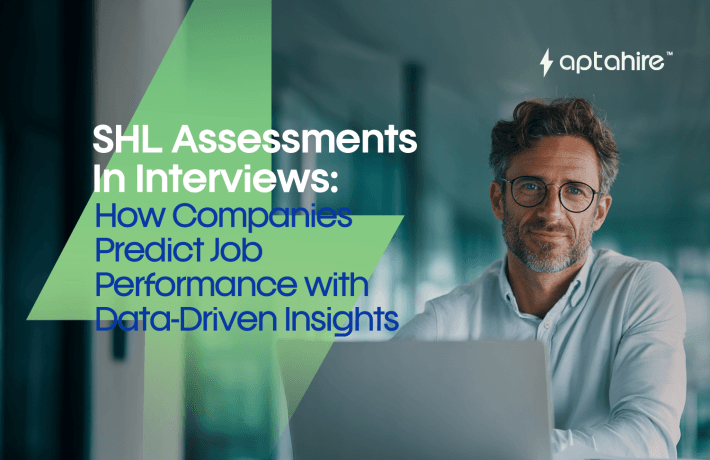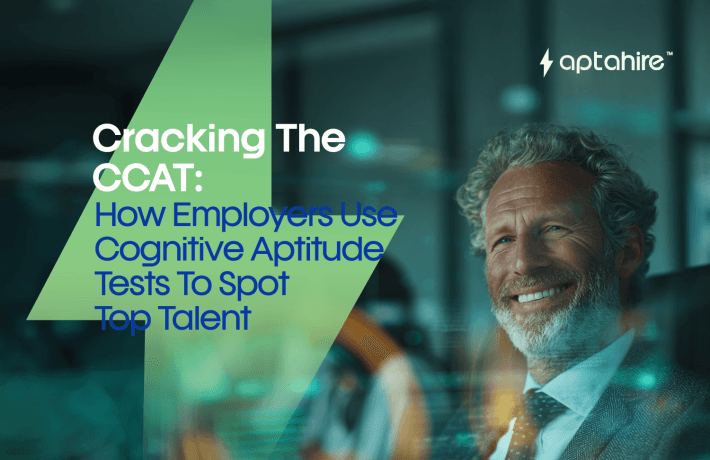Why Companies Use EQ-i 2.0 in Interviews to Assess Leadership and Emotional Intelligence

Picture this: two candidates walk into an interview. Both have the same degrees, similar years of experience, and equally polished resumes. On paper, they look identical. But when the conversation starts, one candidate shows empathy, listens actively, and navigates challenging questions with calm confidence. The other struggles to read the room, interrupts often, and seems rattled under pressure.
Who do you think lands the job?
This is where emotional intelligence (EI) comes into play, and why modern companies are leaning on tools like EQ-i 2.0, one of the most validated and widely used assessments for emotional intelligence, to identify leaders who can thrive beyond technical skills.
What is EQ-i 2.0?
The Emotional Quotient Inventory 2.0 (EQ-i 2.0) is an evidence-based assessment that measures emotional intelligence across key dimensions like self-perception, self-expression, interpersonal skills, decision-making, and stress management.
In simpler terms: it’s not about how “book smart” you are, it’s about how well you understand yourself, manage emotions, and build meaningful relationships.
And let’s be honest, in the modern workplace, emotional intelligence often trumps IQ when it comes to leading teams, resolving conflicts, and driving innovation.
Why Are Companies Using EQ-i 2.0 in Interviews?
1. Leadership is More Than Titles
Being a leader isn’t just about giving instructions, it’s about inspiring trust, handling conflict, and creating environments where people feel valued. EQ-i 2.0 helps recruiters spot candidates with the emotional balance and empathy to step into such roles.
2. It Predicts Real-World Success
Traditional interviews test for experience and technical expertise, but they don’t always reveal how someone behaves in high-pressure, human-centered situations. EQ-i 2.0 highlights a candidate’s ability to stay composed, make thoughtful decisions, and influence people positively, skills that directly impact long-term performance.
3. It Reduces Hiring Risks
Hiring the wrong leader can be costly. A poor hire doesn’t just affect projects, they can disrupt team morale, productivity, and retention. By using EQ-i 2.0, companies gain deeper insights into personality and leadership style before making the call.
4. It Aligns with Today’s Workplace Culture
In an era where mental well-being, collaboration, and diversity matter more than ever, emotional intelligence is a must-have. Companies want leaders who can navigate diverse perspectives, support employee well-being, and foster inclusive cultures, something EQ-i 2.0 measures with precision.
What Does EQ-i 2.0 Actually Measure?
The assessment dives into five composite areas:
- Self-Perception – Do you understand your strengths, weaknesses, and emotions?
- Self-Expression – Can you express yourself clearly and assertively without being aggressive?
- Interpersonal – How well do you build trust, empathy, and collaboration with others?
- Decision-Making – Can you stay objective and make rational choices, even under stress?
- Stress Management – How resilient are you when life (or work) throws curveballs?
Together, these areas paint a holistic picture of how a person leads, not just how they look on paper.
How EQ-i 2.0 Shapes Better Hiring Decisions
Think of EQ-i 2.0 as giving recruiters a pair of X-ray glasses for emotional intelligence. Instead of relying on gut feelings in interviews (which can be biased), hiring managers get data-driven insights into whether a candidate has the emotional skills to thrive in leadership.
For example:
- A candidate might look confident but score low on stress management, suggesting they could crack under pressure.
- Another might not have flashy communication skills but score high in empathy and problem-solving, making them a strong fit for people-first leadership roles.
This balance of science + human insight is why companies trust EQ-i 2.0 as part of their selection process.
Why Leaders With High EQ Matter
High EQ leaders aren’t just nice to have, they’re essential. Studies show that leaders with strong emotional intelligence:
- Boost team engagement and morale.
- Resolve conflicts faster and more effectively.
- Drive better collaboration across departments.
- Create resilient teams that adapt to change.
In short: IQ might get someone the job, but EQ ensures they succeed in it.
Final Thoughts
The future of recruitment isn’t just about technical know-how, it’s about emotional know-how. Tools like EQ-i 2.0 are helping companies see beyond résumés and discover leaders who can inspire, empathize, and adapt in today’s dynamic workplace.
So next time you’re preparing for an interview, remember: companies aren’t only assessing what you know, but also how well you know yourself and others. Because in the long run, it’s not the smartest leader who thrives, it’s the most emotionally intelligent one.
FAQs
1. What is EQ-i 2.0?
EQ-i 2.0 is the Emotional Quotient Inventory 2.0, a scientifically validated assessment that measures emotional intelligence across five key areas, self-perception, self-expression, interpersonal skills, decision-making, and stress management.
2. Why do companies use EQ-i 2.0 in interviews?
Because it provides data-driven insights into a candidate’s emotional intelligence, helping employers assess leadership potential, cultural fit, and the ability to manage stress and people effectively.
3. Is EQ more important than IQ in hiring?
Both matter, but research shows that EQ often outweighs IQ in leadership roles. While IQ gets candidates through the door, EQ determines how well they collaborate, adapt, and lead.
4. What leadership qualities does EQ-i 2.0 reveal?
It uncovers skills like empathy, resilience, decision-making under pressure, conflict resolution, and the ability to build trust and relationships, all crucial for modern leaders.
5. How is EQ-i 2.0 different from a personality test?
Personality tests describe who you are (traits and tendencies), while EQ-i 2.0 measures how you manage yourself and others emotionally. It’s action-oriented and tied directly to performance.
6. Do candidates need to prepare for EQ-i 2.0?
No specific preparation is needed. The best approach is to be authentic and self-aware. Since EQ isn’t about right or wrong answers, it’s more about how you typically respond in real-life scenarios.
7. Can EQ-i 2.0 results predict job success?
Yes. Studies show that candidates with higher emotional intelligence tend to perform better, handle stress effectively, and lead more successfully compared to those who score low on EQ.
8. Is EQ-i 2.0 used only for leadership positions?
Not at all. While it’s popular in leadership hiring, companies also use it for team roles, customer-facing positions, and any job where interpersonal skills are critical.
9. How does EQ-i 2.0 reduce hiring risks?
By highlighting how candidates manage emotions, make decisions, and interact with others, it helps companies avoid costly mis-hires, especially in high-stakes leadership roles.
10. Can emotional intelligence be improved after taking EQ-i 2.0?
Yes! One of the best parts of EQ-i 2.0 is that it provides a roadmap for personal development, showing individuals where they can grow in empathy, resilience, or communication skills.



